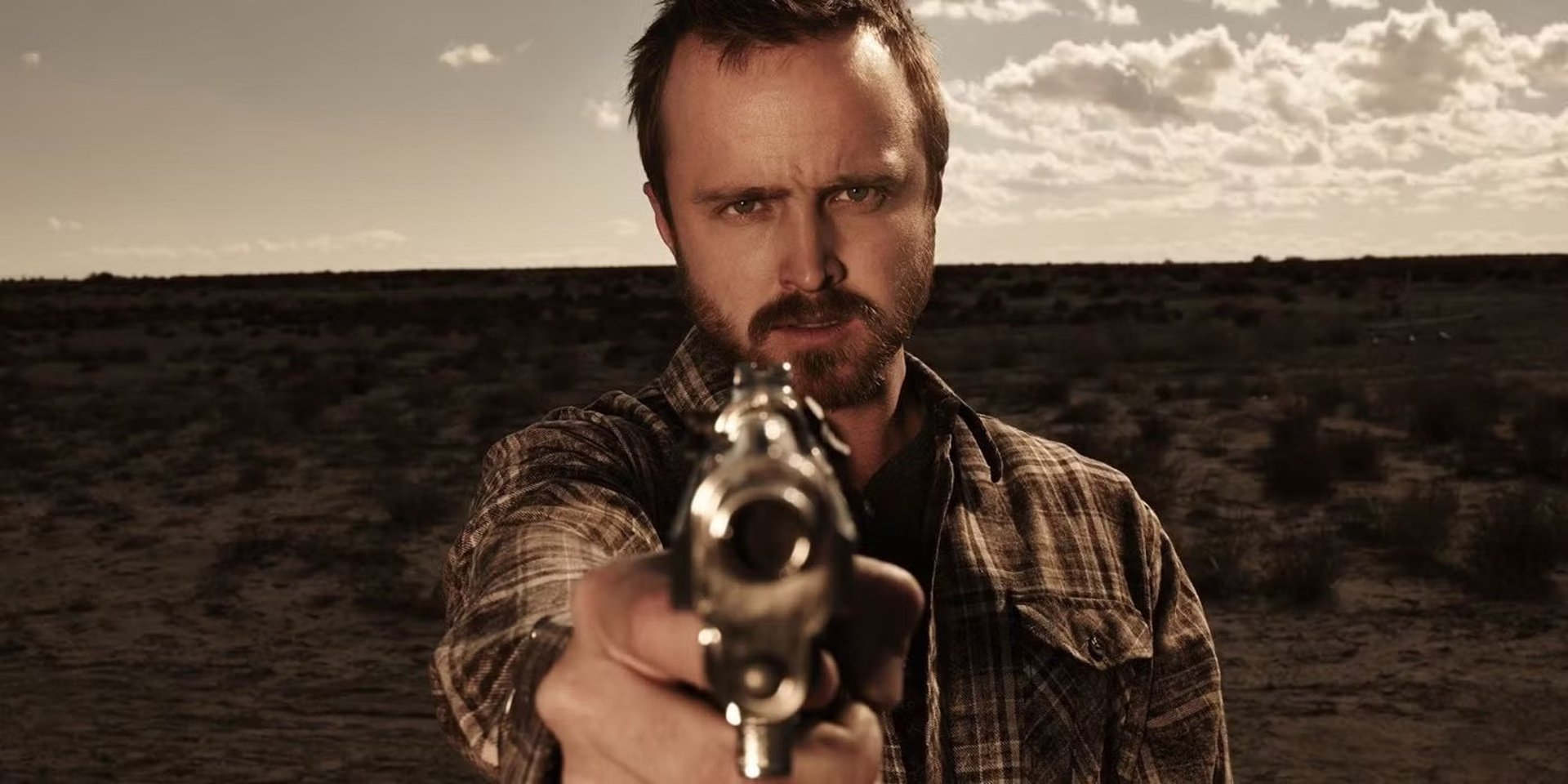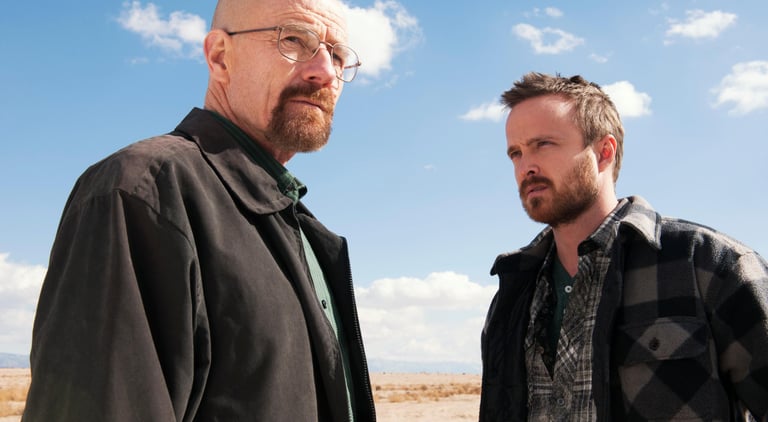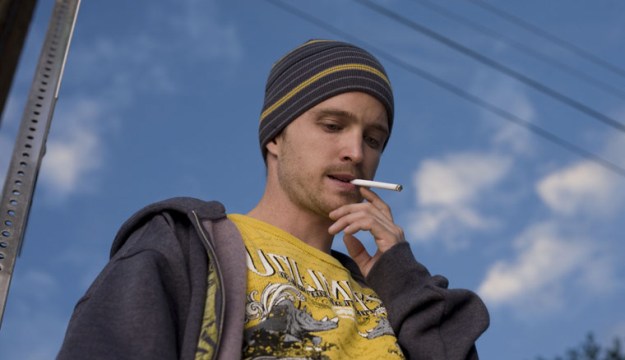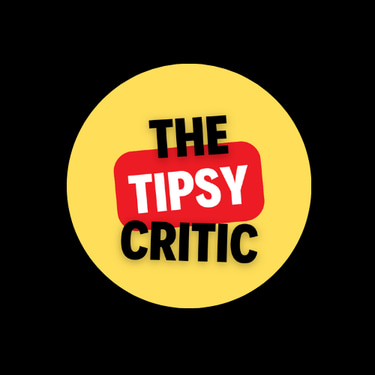“Your home for fearless film reviews, the latest entertainment news, and unfiltered movie rants.”
Aaron Paul Doesn’t Make a Penny from Breaking Bad — And It Exposes a Broken Industry
Aaron Paul revealed he earns nothing from Breaking Bad’s ongoing success on Netflix. Here's why streaming residuals are broken — and what that means for the future of TV.
The Tipsy Critic
6/17/2025

It’s one of the most iconic shows of all time — Breaking Bad defined an era of television, skyrocketed into cultural legend, and continues to dominate Netflix streaming charts over a decade later. But there’s one thing most fans don’t know: Aaron Paul, Emmy-winning star of the show, makes absolutely nothing from its continued success on streaming platforms.
That’s not just unfair — it’s a symptom of a much larger problem in Hollywood. And Paul’s voice might be the one that finally forces the industry to confront it.
The Shocking Truth: Breaking Bad Still Makes Millions — But Not for the Stars
Let’s be clear — Breaking Bad hasn’t just aged well. It’s thriving. Millions of viewers binge the show every year on Netflix, where it continues to chart among the most-watched TV dramas. It’s introduced a whole new generation to Walter White, Jesse Pinkman, and the Albuquerque underworld. But despite being one of the faces of the series, Aaron Paul recently revealed that he receives no residual income whatsoever from its ongoing popularity.
In a 2023 SAG-AFTRA strike appearance, Paul spoke bluntly:
“I don’t get a piece from Netflix for Breaking Bad, and that’s insane to me.”
And he’s absolutely right. Back when Breaking Bad was produced, streaming wasn’t part of the business model. Contracts were based on syndication, cable reruns, and DVD sales. Netflix was barely a DVD-by-mail service at the time — and no one anticipated streaming would become the global TV empire it is today.
The result? Actors, writers, and crew signed contracts that don’t account for the massive, long-tail profits platforms like Netflix are now making. Breaking Bad has made Netflix tens of millions in continued viewership, yet the people who made it iconic see none of that upside.
Aaron Paul Was the Heart of the Show — But Streaming Pays Him $0
Aaron Paul didn’t just show up to set. He helped shape one of the most complex, emotionally raw, and unforgettable characters in TV history. As Jesse Pinkman, he delivered three Emmy-winning performances and brought both intensity and vulnerability to a show that might have otherwise collapsed under its own darkness. By the final seasons, Paul was reportedly earning around $150,000–$200,000 per episode — a fair wage for the time, given the show’s success.
But here’s the kicker: once the final episode aired and Breaking Bad was licensed to Netflix, his income stopped. No bonuses. No royalties. No streaming checks. Nothing.
That disconnect — between continued value and no ongoing compensation — has become one of the central issues in Hollywood labor disputes. Because Aaron Paul isn’t alone. Most legacy actors from shows that blew up on streaming (think Suits, The Office, Community) have shared the same frustration: the shows live forever online, drawing new fans, inspiring memes, selling merchandise — but none of that revenue reaches the talent.
And if a star like Aaron Paul doesn’t get paid, imagine what that means for the supporting cast, the writers’ room, the makeup team, or the cinematographers. It reveals a system that rewards platforms, not people.
The Industry Is Evolving — But The Contracts Haven’t
Paul’s comments didn’t happen in a vacuum — they were part of the massive 2023 SAG-AFTRA and WGA strikes, where residuals from streaming were a core demand. Writers and actors stood on picket lines demanding fair compensation, not just for the work they did once, but for the ongoing value that work generates every time someone hits play on Netflix or Hulu or Amazon.
Aaron Paul and Bryan Cranston even reunited publicly — not for a reboot, but to fight for the right to be paid fairly. They argued that if shows like Breaking Bad are “immortal” in the streaming age, then the people behind them should share in their immortality’s profits.
This issue has implications far beyond Breaking Bad. It affects new shows, young actors, struggling writers, and every future project that hopes to find long-term success. If creators aren’t cut into the deals, studios and streamers essentially get decades of profit from a flat one-time payment.
That’s not sustainable. And as Paul put it:
“Shows live forever on these streamers … and it’s time to pony up.”
What Aaron Paul’s Fight Means for the Future of TV
Aaron Paul’s stand is more than a paycheck — it’s a line in the sand. He’s become a symbol of the larger battle between old Hollywood systems and the new digital reality. Streaming has reshaped how we consume stories, but the financial foundation of that world still lags decades behind. It’s like trying to power a Tesla with a rotary phone — it doesn’t work anymore.
If this conversation leads to change — and industry insiders believe it might — we could finally see new contract models that include fair streaming residuals, shared backend profits, and royalties for performance-driven success. In short: a world where creators aren’t just workers-for-hire, but co-owners of the value they help build.
And fans should care too. Because the reason Breaking Bad hits so hard is because people like Aaron Paul gave it their all. If we want future shows to be just as bold, just as intense, just as unforgettable — we have to make sure the people behind them aren’t left broke while the streamers cash in.
➡️ More real stories from behind the screen at The Tipsy Critic
📲 Follow @thetipsycriticreview for bold movie & TV breakdowns with zero fluff





As an Amazon Associate, I earn from qualifying purchases.
